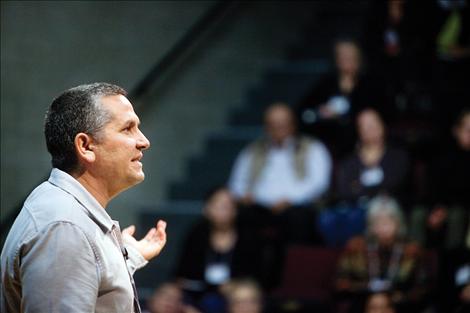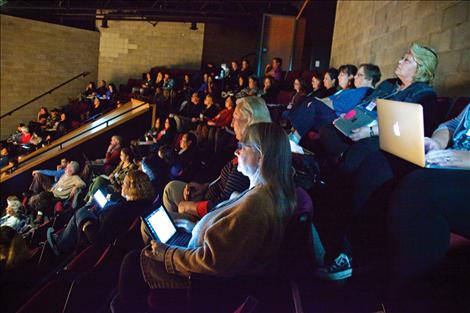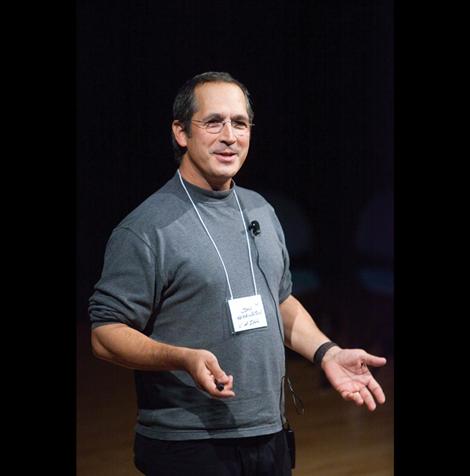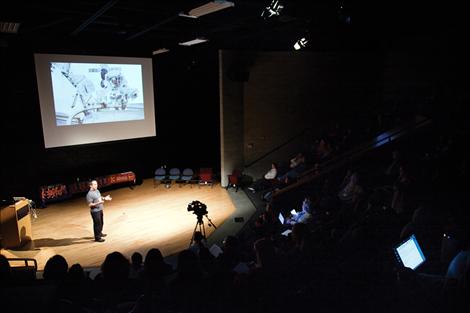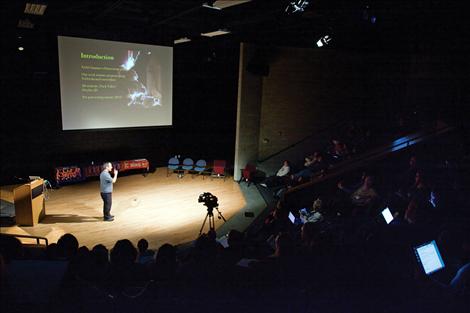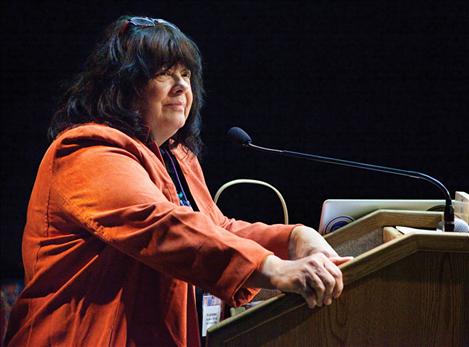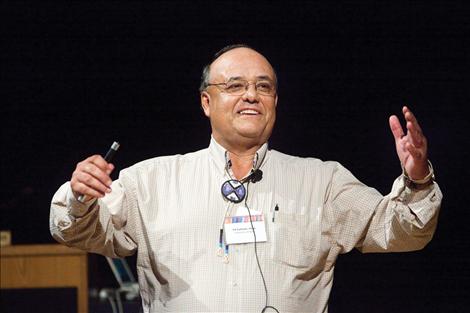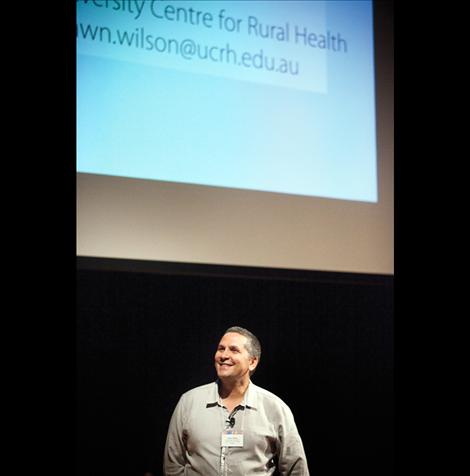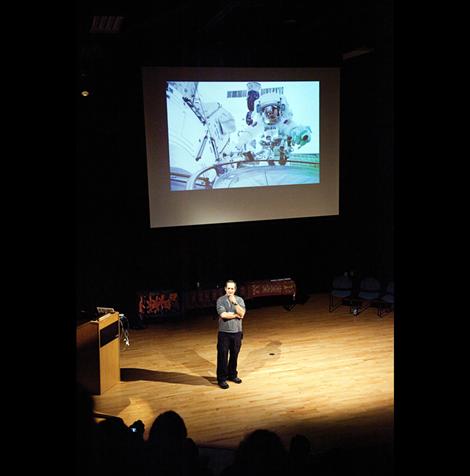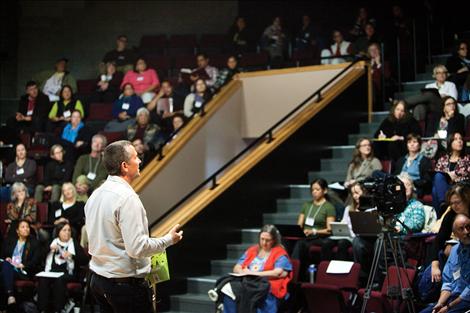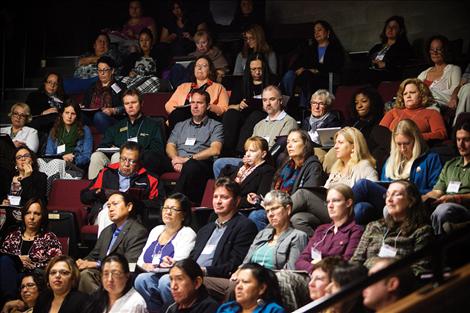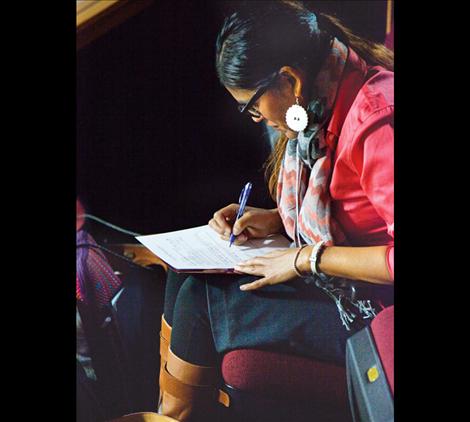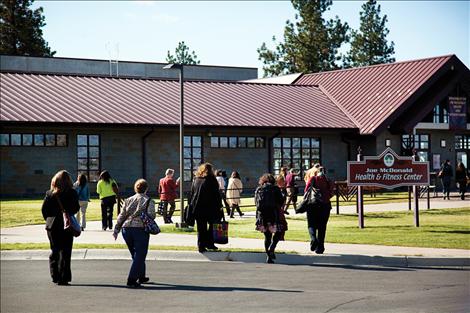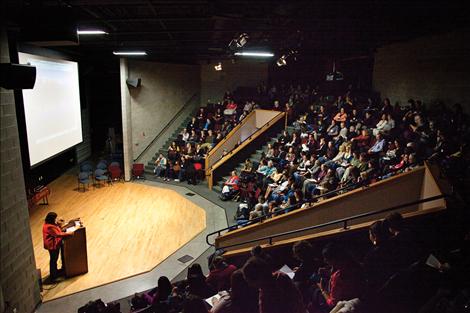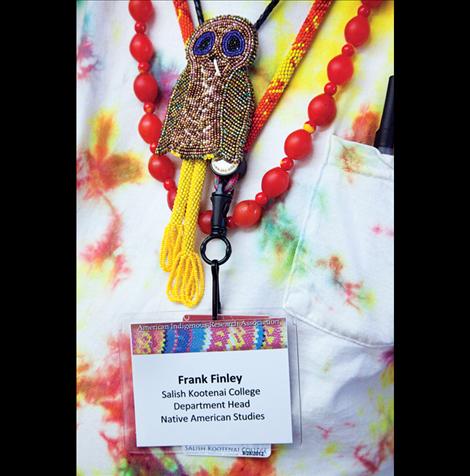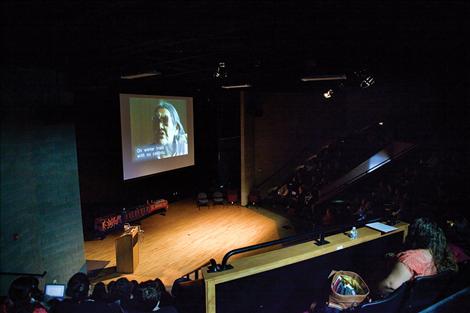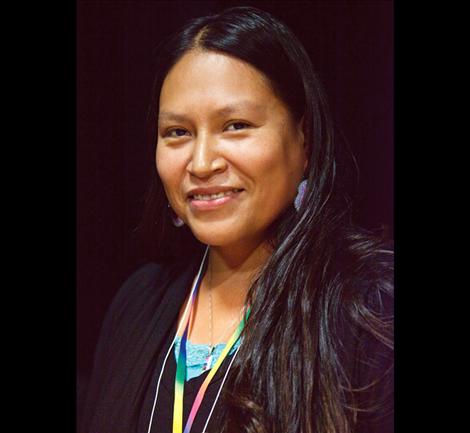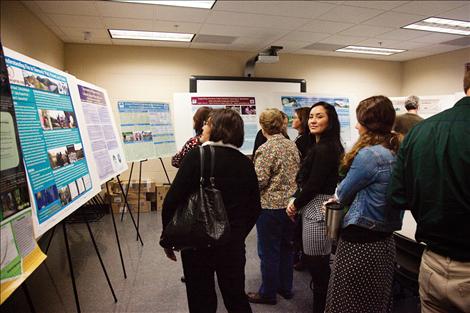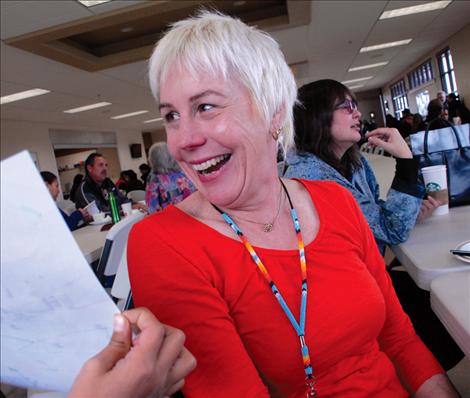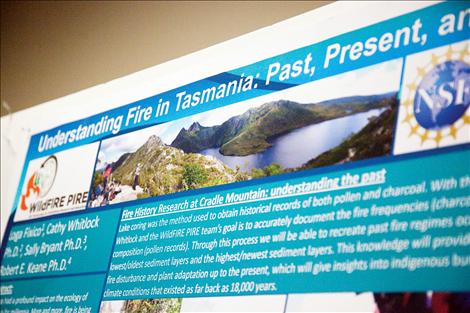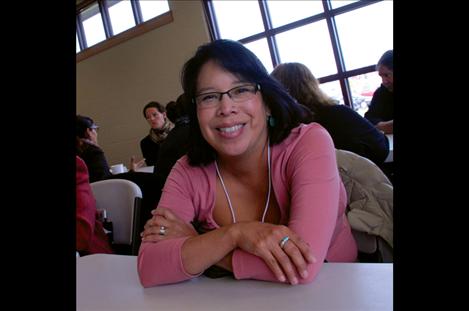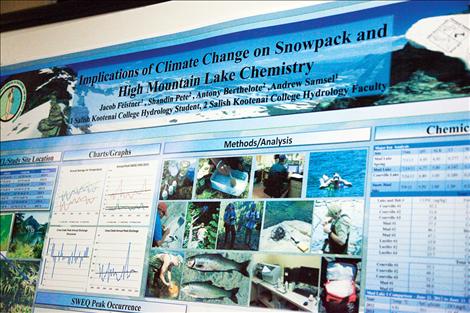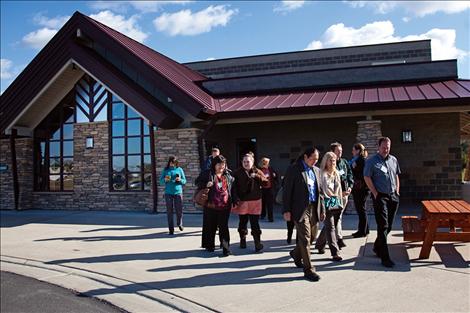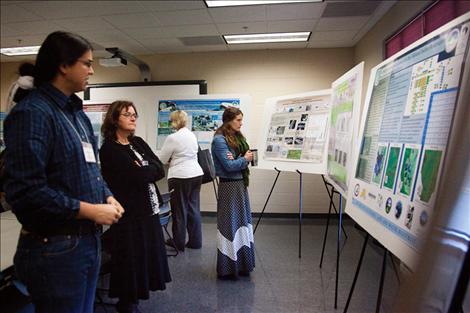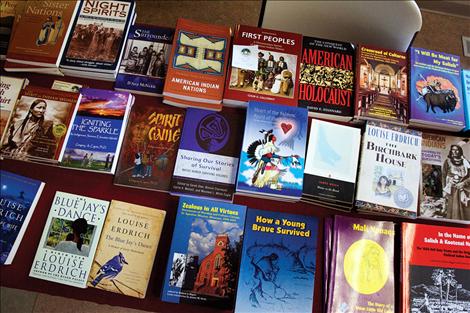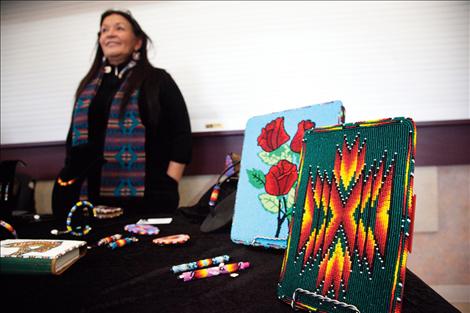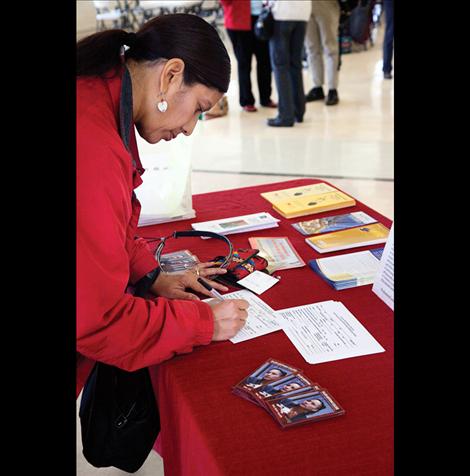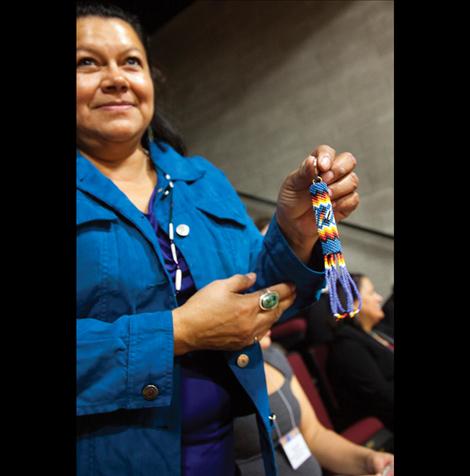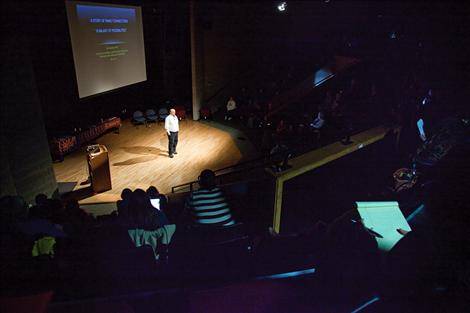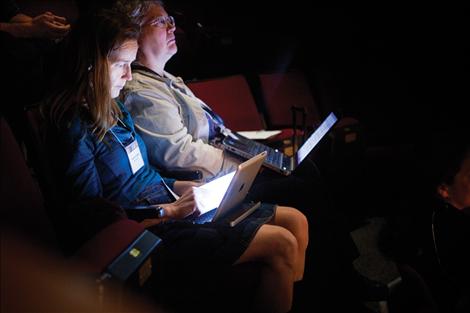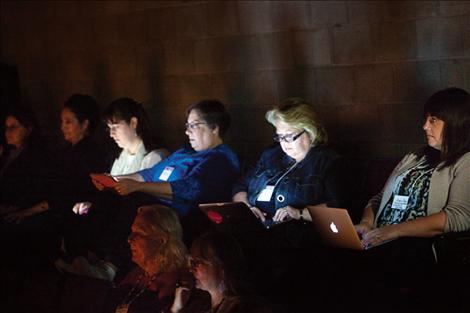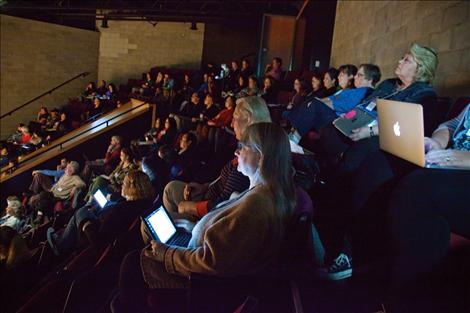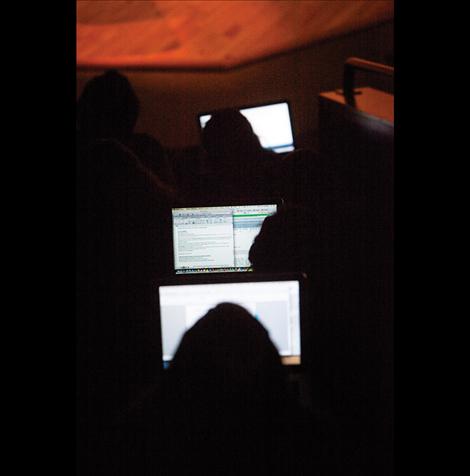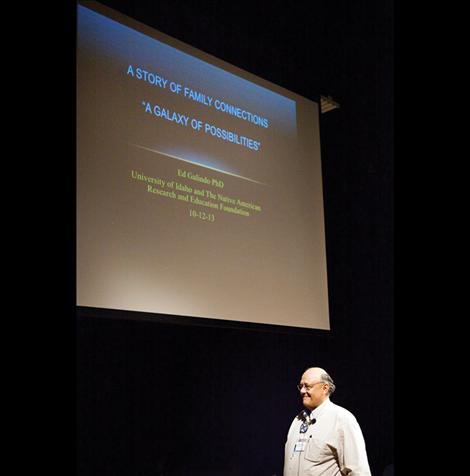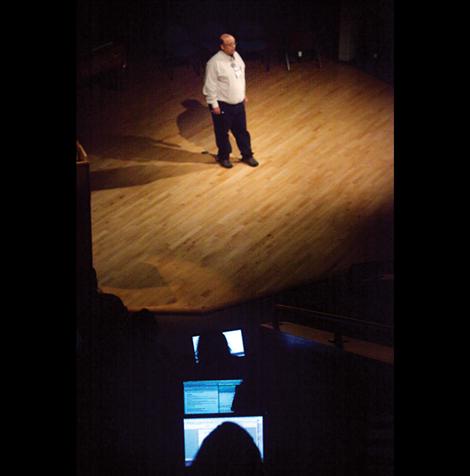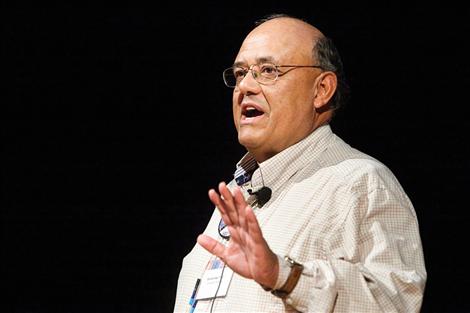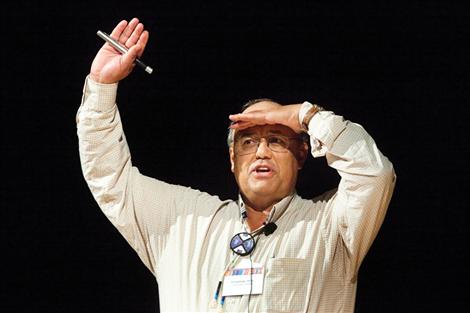Indigenous researchers gather at Salish Kootenai College
Hey savvy news reader! Thanks for choosing local.
You are now reading
1 of 3 free articles.
PABLO — A gathering of scholars, researchers and students from around the globe came to Pablo last week to share knowledge about the different methods of indigenous research.
“The heart of my philosophy is caring, sharing, compassion and truth,” said Shawn Wilson, Ph.D. “As indigenous scholars, our philosophy guides our methods so it also guides the data we collect.”
Wilson, an Opaskwayak Cree from northern Manitoba, Canada, was the first speaker at the first American Indigenous Research Association conference at Salish Kootenai College. Wilson currently works at the University Centre for Rural Health, School of Public Health, Sydney Medical School at the University of Sydney, New South Wales, Australia.
Wilson told the crowd whether he listens to hip hop or eats Mexican food, he’s still Cree; that a researcher can’t divorce himself from his cultural identity.
He also stressed the importance of building relationships when researching indigenous people.
“Relationships are our reality,” he said, whether they are with other people, family, clan, tribe or nation.
“(Indigenous scholars) have started to do a pretty good job of explaining our philosophy, protocols, a sweat and a fast, why that’s important,” Wilson said, “but we’re not so good at explaining our analysis. We need to get a bit better at explaining how we conduct research and how we analyze.”
Wilson was one of an international and interdisciplinary group gathered for the conference, according to Lori Lambert, Ph.D., SKC professor and event coordinator. Noting that SKC can’t take students to conferences, she urged scholars to form an organization and hold their own conference.
In the past, researchers didn’t come and ask permission, “it was grab and go,” Lambert said. So indigenous researchers now use a methodology for research. Lambert wrote the first SKC courses for psychiatry and social work that use the methodology. Her book on the subject,“Looking Forward, Reaching Back,” was recently published by SKC Press.
According to Lambert, the goal of the conference was threefold: to let communities know they have rights when researchers come into their communities; to provide information on methodology for mainstream professors supervising graduate students who want to use an indigenous methodology in their research; to provide students with information to write proposals when they want to use this methodology for their research.
By all accounts, the conference was a success, with indigenous researchers and presenters from Hawaii, Canada, Utah, New Zealand, Washington, Australia, Idaho and other places gathered for the two-day conference. So popular, in fact, that Lambert had to turn people away because the Johnny Arlee/Victor Charlo Theater holds only 208 people.
SKC graduate student Corinna Littlewolf spoke about historical trauma. She became an indigenous researcher because she needed a senior research project, and she chose one that would take her home to the Northern Cheyenne reservation. She got hooked.
The conference gave her an opportunity to present her work, but also a chance to meet her long distance boyfriend Reggie Holguin, from Los Angeles, who is in the addictions counseling field and works with indigenous people at Sherman Indian High School.
Fiona Cram, Ph.D., Aotearoa, New Zealand, came to the conference because a friend from Alaska told her about it. Since she was headed to the United States anyway for the American Evaluation conference in Washington, D.C., she simply changed her plans and came early.
Cram works on Maori health research. At the moment, she said, she is researching maternal health of young Maori women.
Of the approximately four and a half million people in New Zealand, 15 percent are Maori.
“The Maori is a very young population,” Cram said, while the other population is aging.
Cram ran into another friend, Sharon Austin, originally from Shiprock, Ariz., now working on her doctorate in public health at the University of Utah.
Austin and Cram met at the Center for American Indian Health at Johns Hopkins Indigenous Health Training Institute, which went from 2008 to 2010, and drew 50 indigenous people from the United States, two from Australia and two from New Zealand.
They researched indigenous people’s health and the pre suppositions people made — they didn’t care about their health, didn’t comply with medicines, did not eat well. They conducted research by digging into how systems discriminated against indigenous people, even studying “shops” they bought food from and what was available.
Health care systems also were researched because Maori women are more likely to die from survivable cancer.
The indigenous research challenge, Cram said, has a dual focus — the world focus: what indigenous people do, what they value, how they live their lives; and how researchers analyze the systems.
When asked what she thought about the conference, Austin said she thought some of the talks were better than others, adding that some presenters seemed unfocused.
Both Cram and Austin thought Lambert should have gone earlier in the program, laying the foundations for indigenous research.
Austin also said she thought presenters were afraid of quantitative research.
“There should be a way to blend qualitative and quantitative,” Austin said.
Cram added that when doing research always think about doing data interpretation and “how you are going to write it up. Don’t get data that will put you in a corner.”
An issue with indigenous research conferences is that everyone spends time describing their research and their methodology, “which leaves about six minutes to talk about what you are doing,” Cram said.
She said everybody in the Johnny Arlee/Victor Charlo Theater “get the fact that colonization happened so you can just skip that, go half way in and just get down to business.”
University of Montana doctoral student Matthew Croxton came to the conference because he is doing research for his thesis. He works with Dr. Gyda Swaney, UM professor in the psychology department, on resilience in older Native Americans and the elderly.
“It’s interesting to look at resilience instead of susceptibility,” Croxton said.
The research is much needed, and Croxton will take it back home to Arizona.
As conference goers headed to their homes, a round dance on the grassy area by the Joe McDonald Health and Fitness Center offered a final note of friendship.















